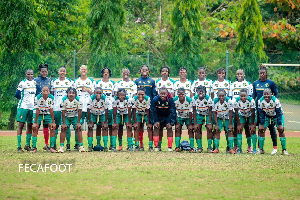A growing trend, even in predominantly Christian communities, has hit the public square and Christians are now the people, on the ground of superstitious beliefs alone, throwing the first stone at their neighbours, friends and relatives, and declaring them guilty of crimes that are sometimes difficult to prove.
These people are either accused of mystically causing the death of family members and other people in their communities, or of involvement in some mystical practices that are detrimental to their communities. This burgeoning or rapidly growing verbal mob justice, in which some community members have unilaterally arrogated to themselves the role of chief justices, unquestionably presenting the evidence and facts they want the public to see and passing the guilty verdict on others, without even listening to the accused, challenges us all to stand and reflect profoundly on who we really are as Christians.
This thinking pattern implies that those who are condemning others are standing on a higher moral pedestal or ground than those they are condemning. Yes, when we speak ill of others without evidence, we are actually and directly saying that we are better than they are. To say that evil does not exist in our communities is at worst idiotic and at best ridiculous as Cameroon’s Penal Code recognizes witchcraft and sorcery those found guilty are punished accordingly, but those found guilty are only punished on the basis of the weight of the evidence brought against them. Since these claims are usually serious and usually push justifiably frightened community members to ostracise those being accused, it even becomes even more grave when such accusations are made on nothing but flimsy hear-says.
In His book God and Violence in the Old Testament, Terence Fretheim writes, “For many people, ... only physical violence truly qualifies as violence. But, certainly, violence is more than killing people, unless one includes all those words and actions that kill people slowly. The effect of limitation to a “killing fields” perspective is the widespread neglect of many other forms of violence. We must insist that violence also refers to that which is psychologically destructive, that which demeans, damages, or depersonalises others. In view of these considerations, violence may be defined as any action, verbal or nonverbal, oral or written, physical or psychical, active or passive, public or private, individual or institutional/societal, human or divine, in whatever degree of intensity, which abuses, violates, injures, or kills.”
From the above definition, how many people are we innocently killing every day with our words and actions? Are we any different from those we are accusing and is it not even more condemnable when we are actually doing what those we are accusing may not have done? How many are prepared to stand in court and present evidence against those they are accusing or to speak as loudly as they do in public when they are running down their fellow brothers and sisters?
Commenting on the magnitude of verbal mob justice Terence Fretheim adds, “Just beneath the surface in many of our homes, churches, and communities is abuse enough to freeze the blood. Moreover, many forms of systemic violence often slip past our attention because they are so much a part of our life infrastructure.”
Generally those being accused are people who have made or are making some social, professional or material, or even striving to make some spiritual progress in their lives. And so the message gets past on that it is a crime to succeed or to be positively ambitious. And so the critics of those struggling to make in life only see the green lawns in front of their enemies’ houses and never the heavy water bills that they are paying to water these lawns. Why is hard work glorified and encouraged elsewhere and so often stigmatised in Cameroon and many of our communities? No doubt, few see anything wrong in standing at street corners for hours condemning those working so hard to improve their lot.
And suppose those we accuse are guilty, what should our attitude as Christians be towards them? While Christians have to be watchdogs against evil practices in their communities, they should equally be just as careful when passing judgement without evidence on others, for if they are without reproach themselves, let them throw the first stone.
By Ireneaus Chongwain Chia
Réligion of Sunday, 6 April 2014
Source: leffortcamerounais.com














